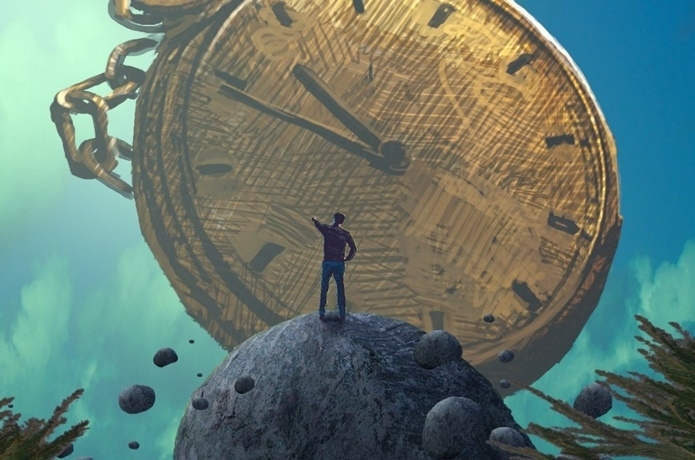
(For the audio version of this blog, please visit: https://brothersinchristcmf.org/wp-content/uploads/2024/02/Mass-Blog-for-the-Fourth-Sunday-of-Lent-2024.mp3)
The latest issue of Case Western Reserve University’s alumni magazine featured an article titled “A Mindset Reboot: Grappling with the prospect of a finite human future.” That title isn’t surprising, coming from a secular university. The title of the author profiled in it is though. He’s described as a “religion scholar.” Nothing in his official title reflects expertise in divinity, though. He’s listed as a distinguished university professor with a Ph.D. from the college of arts and sciences.
The article discusses a how-to book he just wrote about “finding our way in the Anthropocene.” That ten-dollar word describes a new geologic epoch “defined by humanity’s damaging footprint.” The author suggests we acknowledge that our time on earth is short. He embraces a Hebrew biblical tradition steeped in nature, telling us we’re from dust, and to dust we return.
We Catholics used to acknowledge the same thing as we marked each new Lenten season by receiving an ashen cross on our foreheads. But it’s a new day and age, and instead of acknowledging our future as dust, today our Lenten ash distributor quotes one of Jesus’ first pieces of advice, straight out of the beginning of Mark’s gospel: “Repent and Believe in the Gospel.”
What we need to reject as we exit the Anthropocene, the author suggests, is the notion that humans are exceptional animals ordained by God to hold dominion over nature, and instead, adopt a mindset of “earth creatureliness.”
“Life comes from death, depends on death, even feeds on it,” he advises. “Accepting this will help us break our denial of human finitude.”
Indeed, Jesus seems to concur, based on what he teaches through John’s gospel:
“Unless a grain of wheat falls to the ground and dies, it remains just a grain of wheat, but if it dies, it produces much fruit.” (JOHN 12:24)
Unlike what this professor tells us, though, that fruit represents the hope of what comes next. Mark’s gospel tells us what Ph.D. scholars of the Anthropocene don’t:
“Whoever wishes to save his life will lose it, but whoever loses his life for my sake and that of the gospel will save it.” (MARK 8:35)
Ph.D. scholars use their titles to promote the work they’ve done for humanity, and this particular one’s work seems to suggest we abandon the hope of going on forever and work instead at enjoying the limited time we have left.
But as Paul teaches the Ephesians in this Sunday’s second reading (Eph 2:4-10), hope can’t be found in our work, but in God’s gift of faith that allows us to inhabit HIS work—as accomplished through us.
For we are his handiwork, created in Christ Jesus for the good works that God has prepared in advance, that we should live in them.
By not believing in our role in the eternal arts and sciences of God, we condemn ourselves to the darkness of the Anthropocene’s dustbin. But John’s gospel tells us we were made to be reflectors of God’s eternal light:
Whoever lives the truth comes to the light, so that his works may be clearly seen as done in God. (Jn 3:14-21)
That light is our life, and it’s magnified by each other’s faith. It’s the cure for anyone contracting a terminal case of academia.
–Tom Andel
We live not for this life only.
The problem with so many “smart” people in academia and others, is they seem clueless as to where their intelligence came from. Which to me is the dumbest logic possible.
These people have gifts, but they aren’t smart enough to recognize where they come from.
Have the faith of a little child! True wisdom.
It’s the classic lesson of Adam & Eve. Rather than accepting the gifts God gave them, they tried taking the Giver’s place. Fools rush in where angels fear to tread. Well, all angels except for the one who taught Adam & Eve a Hell of a lesson about the darkness of artificial brightness.
All we can do is try to spread the good news in our communities. Acceptance of it is up to the recipient. Prayer warriors need to keep fighting the good fight.
Thanks for all you do, TA
Brothers in Christ share that common trait. We amplify each other’s prayers so our Father hears them. Brats like us never stop nagging Him.